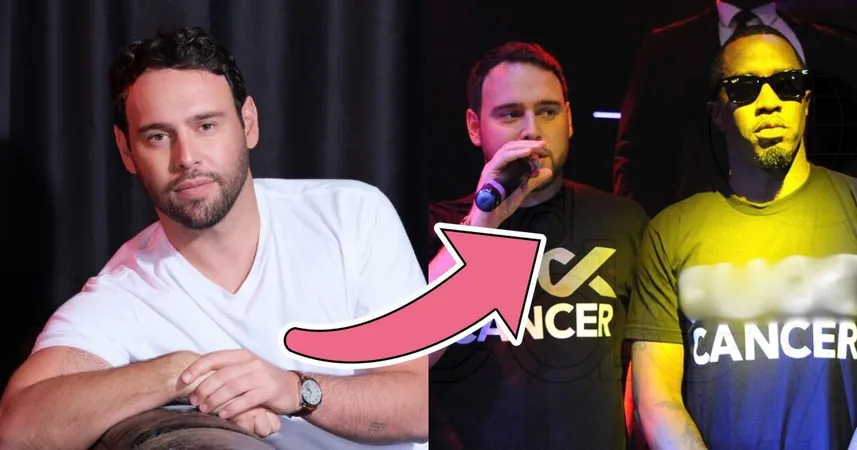
Breakthrough in Long COVID Treatment? High-Dose Lithium Shows Promise Against Fatigue and Brain Fog
2024-10-02
Author: Nur
A Groundbreaking Study
A groundbreaking study from the University at Buffalo sheds light on a potential treatment for long COVID, a condition afflicting millions worldwide. While low-dose lithium aspartate was found to be ineffective for treating the fatigue and cognitive impairments often associated with long COVID, surprising evidence suggests that higher doses may deliver significant relief.
Published in JAMA Network Open on October 2, this clinical trial was led by Dr. Thomas J. Guttuso, Jr., a neurology professor at the Jacobs School of Medicine and Biomedical Sciences at UB.
A Negative Study with a Positive Twist
Dr. Guttuso described the nature of the study as “a negative study with a positive twist,” highlighting how initial disappointing outcomes led to further exploration of higher doses. After an anecdotal report from a patient who experienced remarkable improvement in their symptoms after taking just 5 milligrams of lithium aspartate, Dr. Guttuso began to consider lithium as a viable option for others suffering from long COVID.
Treatment of Additional Patients
Excited by this single success story, Dr. Guttuso treated nine additional long COVID patients with doses ranging from 5-15 milligrams a day. Remarkably, 90% of these patients reported significant relief from fatigue and brain fog. “I had high hopes for our randomized control trial based on these results,” he admitted, “but sometimes research can deliver unexpected outcomes.”
Randomized Controlled Trial Findings
The randomized controlled trial revealed no benefit from the doses of 10-15 milligrams compared to a placebo, prompting Dr. Guttuso to delve deeper. When one patient increased their dosage to 40 milligrams and noted substantial improvement, the clinical team initiated a dose-finding study to test higher doses systematically.
Exploratory Phase Results
Three participants completed this exploratory phase of the study, and those who received 40-45 milligrams of lithium aspartate reported notable declines in fatigue and cognitive dysfunction, particularly patients with higher blood lithium concentrations. Dr. Guttuso emphasized that these findings, while encouraging, are preliminary due to the small sample size.
Key Takeaways and Future Prospects
“There’s a possibility our initial trial failed because the lithium dosage was simply too low,” he explained. “The key takeaway here is that very low doses, specifically 10-15 milligrams, are ineffective. We might need to conduct another trial with higher doses to see if they can yield better results.”
Current Impact of Long COVID
Currently, long COVID affects approximately 17 million individuals in the U.S. and around 65 million globally, with no evidence-based treatments available. Dr. Guttuso expressed hope that the National Institutes of Health (NIH) would support further studies on lithium at higher dosages, particularly as the NIH is allocating an additional $500 million toward promising long COVID therapies.
Caution for Patients
He cautioned, however, that if lithium aspartate proves effective in future trials, patients should consult their healthcare providers before starting treatment. Monitoring blood lithium levels will also be crucial if patients decide to take higher dosages.
Conclusion and Future Developments
With so many lives affected by long COVID, the implications of this research could be significant, potentially paving the way for a new approach to managing symptoms many have suffered with for years. Stay tuned as this evolving story unfolds in the realm of long COVID treatment developments!




 Brasil (PT)
Brasil (PT)
 Canada (EN)
Canada (EN)
 Chile (ES)
Chile (ES)
 España (ES)
España (ES)
 France (FR)
France (FR)
 Hong Kong (EN)
Hong Kong (EN)
 Italia (IT)
Italia (IT)
 日本 (JA)
日本 (JA)
 Magyarország (HU)
Magyarország (HU)
 Norge (NO)
Norge (NO)
 Polska (PL)
Polska (PL)
 Schweiz (DE)
Schweiz (DE)
 Singapore (EN)
Singapore (EN)
 Sverige (SV)
Sverige (SV)
 Suomi (FI)
Suomi (FI)
 Türkiye (TR)
Türkiye (TR)